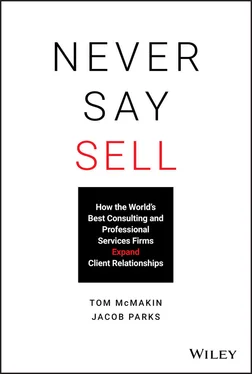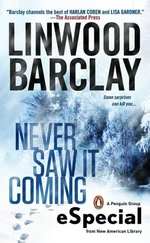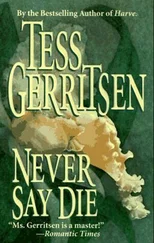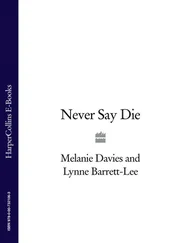1 Cover
2 Foreword Foreword A Place in Time Outside, a new day dawns in the east, the sky daubed with great washes of purple and orange. It is May 1st, and today is the day our manuscript is due. We are just putting our final touches on the draft, numbering pages, and adding in the endnotes as puffed-up robins strut through the newly green grass. Yet on what should be a day of celebration, we feel somewhat melancholy; the moment is stained by the COVID-19 pandemic that hangs over the world like a shroud. We don't have to tell you – the news washes over us every day in unrelenting waves from all corners. Healthcare workers are overtaxed. There's not enough personal protective equipment. There's more death. It is a sobering time – a time when all of us have our heads down and are just a little more focused on our work, if we are lucky enough to be decamped at our kitchen tables taking Zoom calls. It is against this backdrop that this project has taken on a fresh urgency for us. During a time when our institutions and mores are being stressed, we need the help of smart people to navigate through and beyond our current raft of challenges. To us, this is the essence of why we have written this book – to help all of us build more durable bridges between our experience and insight and the challenges that this expertise can help. Although we're not on the front lines with the nurses in Queens or the ER doctors in Kirkland, we should still be asking ourselves each day, “How can we help?” As experts of all different stripes, there is a need for the solutions we offer; the world needs all of us to lean in more. We hope you find this book useful – not only to help build back any prosperity you may have lost in this crisis, but, more importantly, to think anew about how your unique background, skillset, and wisdom can help your clients architect a brighter future for their communities and their customers. Thanks for picking up this book. Stay safe. Tom and Jacob
3 Why We Never Say Sell Why We Never Say Sell Walt Shill looked around the room at his client team. He had gathered them from far reaches of the globe to review Accenture's previous year's work with a major client with an eye for how they might increase their mandate over the next year. As they reviewed the different elements of the business that could benefit from Accenture's skillset, a handful of suggestions were made by team members with a deep understanding of this client's business model (supply chain optimization, back-office centralization, and a new technology for budgeting, to name a few) when, abruptly, the brainstorming was interrupted by one member of the team who said, “What are we doing here? We don't want to be ambulance chasers!” Shill, a passionate man, erupted. “What are you talking about? We are the fucking ambulance! If you don't think we can help people and that we can add value, then you need to look for another job. We have a moral obligation to use our skills to solve their problems.” Our observation, after a collective 50-plus years in expert services, is that there is a strong correlation between expert services and aversion to what is perceived as selling. Interestingly, it seems to grow stronger as you move into job descriptions that require unique degrees or certifications, such as the legal or accounting professions. A photo on a bus bench might be effective for a realtor, but it would be unimaginable for a top-tier attorney. Somehow, we think if we are good, the world should beat a path to our door. But the truth is that experts should feel a moral obligation to assist clients in need: We should be the ambulance when our clients need help.
Section 1: Who We Are and the Problems We Want to Solve Section 1: Who We Are and the Problems We Want to Solve
CHAPTER 1: From Foothold to Footprint CHAPTER 1 From Foothold to Footprint We're jetting back and forth across the country visiting clients. It's Friday afternoon, and we are looking forward to finally spending a weekend at home. Jacob, the younger of us, is thinking about the prospect of winning Spokane's Hoopfest for the third year in a row with his in-laws. Tom is dreaming about scouting for elk in southwestern Montana in preparation for hunting season. We are coming off a two-day string of meetings in Manhattan with clients and prospects. It's been a fast-paced and satisfying trip, but as we contemplate our travel home, with the long layover and dozens of follow-up emails from our last two days, we both let out a sigh. Tom's wearing a blue suit, print tie, and black lace-up shoes. Jacob's sporting a natty charcoal suit, no tie, and brown shoes with green argyle socks. Two businesspeople, each with varying degrees of gray hair, pushing our way through LaGuardia on our way home. We duck into the bathroom at the east end of the terminal, and change from our suits into jeans, comfortable shoes, and sweaters for flight back home. Tom is headed to Bozeman while Jacob will part ways with him in Salt Lake City and head home to Spokane. There are certain rules to changing at the airport. Don't pick a stall without a hook, don't take off your socks, and don't put the roller board on the toilet seat or it won't stop flushing. Like you, we're road warriors, crisscrossing the country in service of our clients. Our particular expertise is helping expert services firms drive business development, but we could equally be accountants, human resources specialists, attorneys, software integrators, engineers, strategy consultants, or cybersecurity wizards. We all share one thing in common: We are fellow travelers in the land of building trust and credibility in an effort to sell our expertise. We recognize problems in client companies and help them meet those challenges. This work looks different across the spectrum of professional services, but the work all aims to accomplish the same outcome for clients: to innovate, to solve, to create, and to build. The Economist recently wrote that consultants “scare companies by laying bare where they are failing, then soothe them with counsel on how to improve.” We don't agree with the “scaring” part – that sounds like the kind of sales manipulation we hate – but we do know that expert services providers work to help improve their clients. As experts, we offer our experience, our point of view, our intelligence, our training, and the bitter lessons we have learned from doing what we do for many years.
The Question The Question This book is a sequel of sorts to a book Tom wrote with Doug Fletcher called How Clients Buy: A Practical Guide to Business Development for Consulting and Professional Services . In that book, we asked the question, What's the secret to winning new work in professional services? We interviewed rainmakers at leading legal, consulting, engineering, and financial services firms to learn more about the process of how clients engage with expert services providers. We learned a lot, but the book wasn't out long before many of you wrote us to say: What we're really interested in is expanding our relationships with our current clients. How do we do that? This feedback isn't surprising. When we ask expert services providers how much of their year-over-year growth in revenues comes from new logos versus expanded assignments, they report new work with existing clients represents an astonishing 80% to 90% of new revenues. We see those same numbers at our company, Profitable Ideas Exchange (PIE™). In the short run, at least, expanding current relationships represents a much larger opportunity than cold calling new prospects. Sometimes we hear rainmakers talk about how they work to “land and expand” a client. If How Clients Buy gave us landing lessons, Never Say Sell describes how to expand, asking a simple question, What's the secret to growing your work within clients?
Читать дальше












